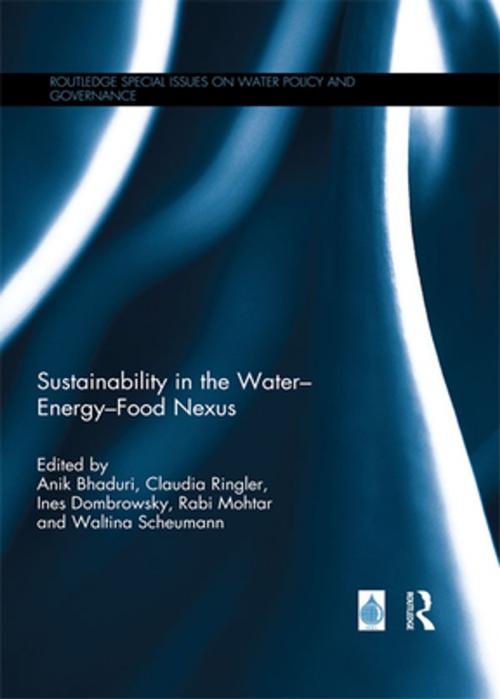Sustainability in the Water Energy Food Nexus
Nonfiction, Social & Cultural Studies, Political Science, Politics, Regional Planning, Government, Public Affairs & Administration, Public Policy| Author: | ISBN: | 9781315408804 | |
| Publisher: | Taylor and Francis | Publication: | April 19, 2018 |
| Imprint: | Routledge | Language: | English |
| Author: | |
| ISBN: | 9781315408804 |
| Publisher: | Taylor and Francis |
| Publication: | April 19, 2018 |
| Imprint: | Routledge |
| Language: | English |
It is beyond doubt that the interconnectedness between food, energy, water security and environmental sustainability exists and is getting amplified with increased globalization. It has been recognized that efforts to address only one part of a systemic problem by neglecting other inherently interlinked aspects may not lead to desirable and sustainable outcomes. In this perspective, policy- and decision- making requires a nexus approach that reduces trade-offs and builds synergies across sectors, and helps to reduce costs and increase benefits for humans and nature compared to independent approaches to the management of water, energy, food and the environment. In the past, work related to the Nexus has looked at the interactions between water and food or water and energy, but there has been a reluctance to bring forward a broader systematic perspective that captures the multiple sectors and resource dependencies while understanding its cost to the environment if we neglect these linkages. This book is a compilation of thirteen papers published previously as a special issue of Water International, contains significant pieces of work on the W-E-F nexus focusing on relevant tools, solutions and governance at local and broader human scales.
It is beyond doubt that the interconnectedness between food, energy, water security and environmental sustainability exists and is getting amplified with increased globalization. It has been recognized that efforts to address only one part of a systemic problem by neglecting other inherently interlinked aspects may not lead to desirable and sustainable outcomes. In this perspective, policy- and decision- making requires a nexus approach that reduces trade-offs and builds synergies across sectors, and helps to reduce costs and increase benefits for humans and nature compared to independent approaches to the management of water, energy, food and the environment. In the past, work related to the Nexus has looked at the interactions between water and food or water and energy, but there has been a reluctance to bring forward a broader systematic perspective that captures the multiple sectors and resource dependencies while understanding its cost to the environment if we neglect these linkages. This book is a compilation of thirteen papers published previously as a special issue of Water International, contains significant pieces of work on the W-E-F nexus focusing on relevant tools, solutions and governance at local and broader human scales.















